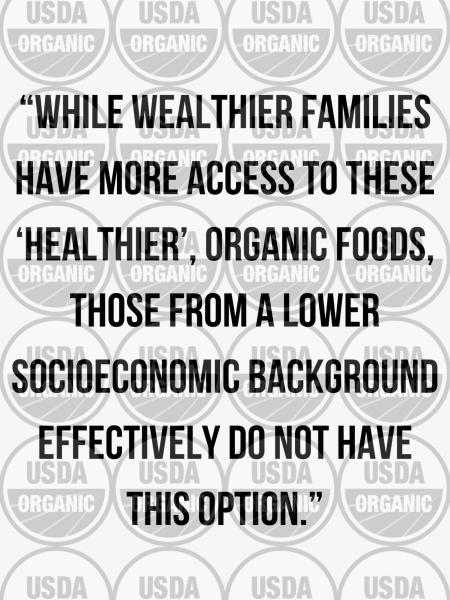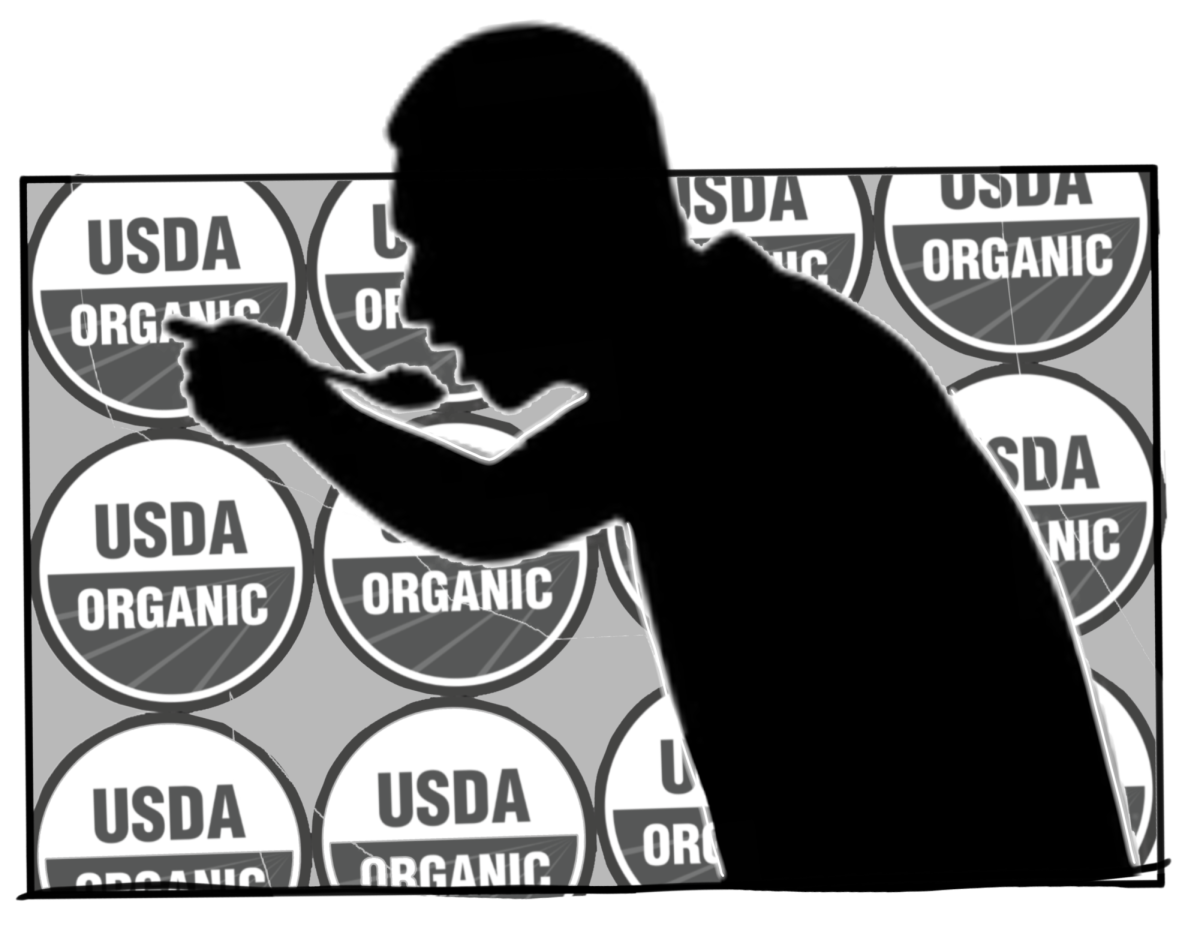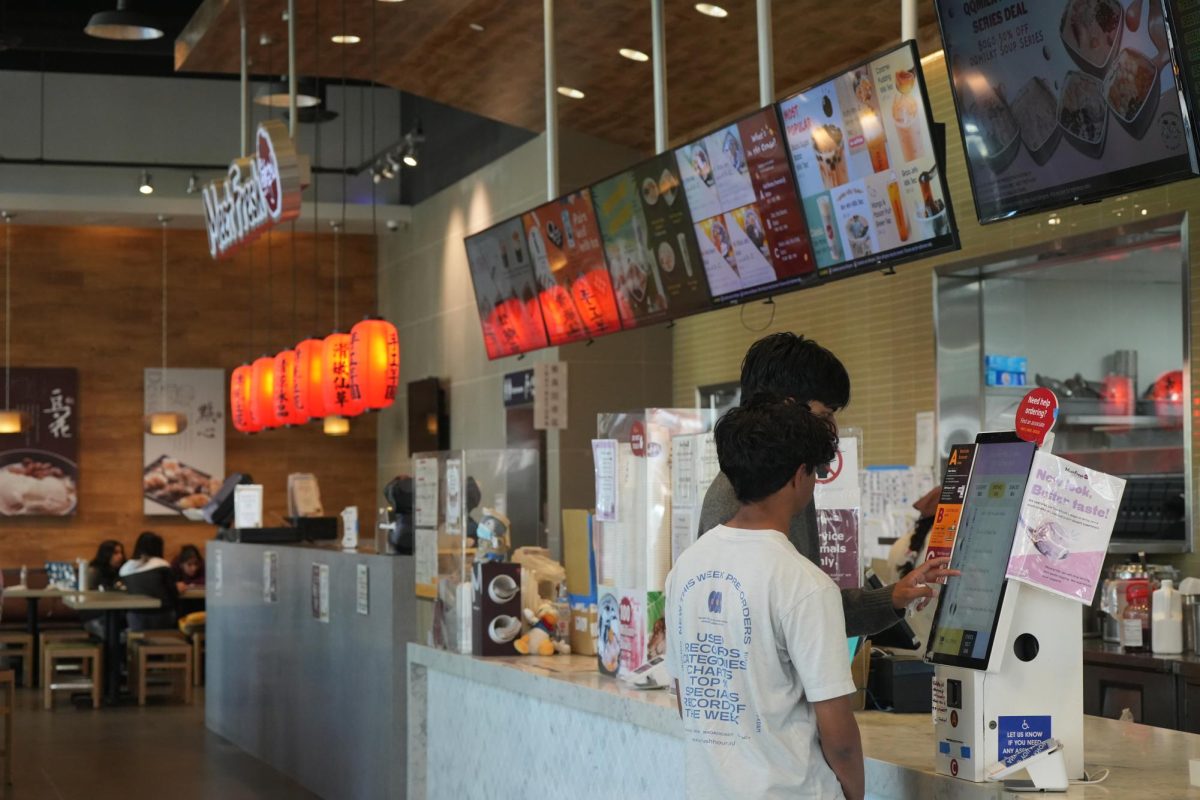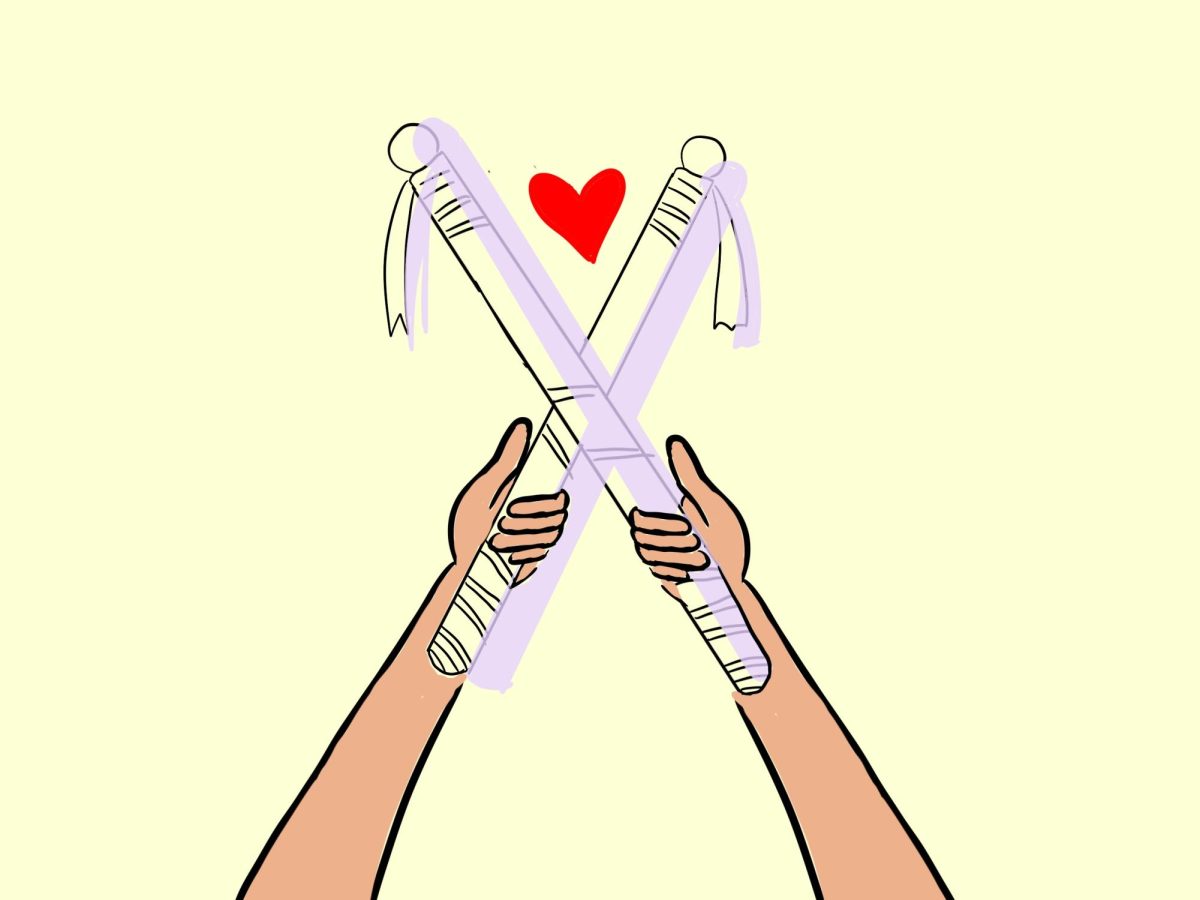‘You are what you eat.’ We’ve all heard this saying before, said to us by parents, teachers or other well-meaning figures in our lives. What they mean is that health is dependent on a healthy diet first and foremost. A way to achieve this healthy lifestyle — one often touted by the people around us — is eating organic. Many websites sing the praises of organic foods, ascribing all sorts of benefits and health improvements to them. It’s a relatively recent phenomenon in America, only taking off in the last few decades. With that in mind, it’s not hard to see the reasoning behind its rise in popularity.
Yet the truth is that eating organic food is not very accessible. Organic grocery essentials, for example, cost two-thirds more than non-organic essentials on average. Though this price increase may not mean much for the average middle-class consumer, it can add up over a long period of time, showing that organic foods are not very affordable in the long run. The fact remains that organic foods are quite expensive — and that this high price might not be justified. While wealthier families have more access to these ‘healthier’, organic foods, those from a lower socioeconomic background effectively do not have this option.

We also need to consider if eating organic really is all that effective for one’s health. Although organic foods undoubtedly have some health benefits such as providing more nutrients and reducing the chance of illness, those benefits tend to be minimal at best, and do not particularly justify the high cost. Studies have shown over and over again that there is no real change that eating organic enacts on a person’s health.
Additionally, health benefits are not the only reason people eat organic. Farms that grow crops without the use of pesticides are often said to be easier on the environment, making eating organic a moral obligation rather than something done for physical benefit. But this isn’t all that true either. Certain non-organic foods like GMOs are far more sustainable, often requiring less upkeep (and therefore less pesticides), as well as being easier to produce and transport reliably. This in turn makes them cheaper and more easily accessible. Yet, the stigma surrounding GMOs is the biggest barrier to widespread acceptance, despite the fact that GMOs are not very different from natural foods in a practical sense.
The truth is that organic farming methods often take more resources and are a bigger strain on the environment than conventional ones. For example, grass-fed livestock require far more space than feedlots used in conventional farming, which can lead to deforestation when more land is required. That’s far from the only issue that such a large land requirement — ranging from 59%-200% increase — causes. The need for a much larger space to grow the same amount of organic food is one of the biggest obstacles in the journey to sustainability.
Furthermore, the rise of organic farming often leads to conventional farming being phased out, raising taxes on non-organic farms. This punishes independent, smaller-scale and more sustainable farmers that cannot make the switch to organic. Bigger, more corporate farms can afford this switch, yet paradoxically are often worse for the environment overall even as they remain organic. On the contrary, smaller-scale farms tend to be better for the environment and produce healthier food even if they do not have the label of organic. Supporting them helps to give back to your community and allows them to keep operating instead of being replaced by commercial farms.
In order to eat healthy and live sustainably, we should first and foremost do our own research. Those healthy, affordable options are out there, they just require more searching than simply grabbing anything with an organic label on it. This doesn’t mean to stop buying organic completely — just keep it in mind if being green is a personal goal. It’s too much of a complicated issue to be able to generalize as easily as saying ‘organic is actually bad’ or something of the sort. Aiming to understand and inform ourselves on this matter should be the end goal, both for ourselves and the earth we live on.

















